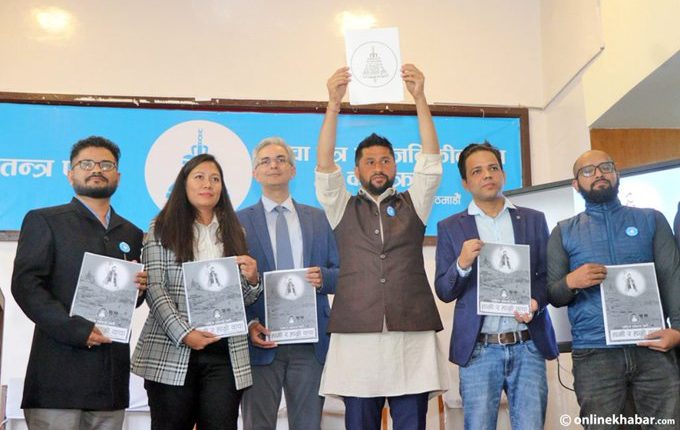Rastriya Swatantra Party offers to extend support to five-party alliance for government formation in Nepal
Kathmandu: Newly-formed Rastriya Swatantra Party on Saturday offered to extend support to the five-party alliance headed by the Nepali Congress in government formation, even as it urged coalition parties to work towards achieving a corruption-free bureaucracy and transparency in governance.
The Rastriya Swatantra Party (RSP), floated by a former television personality Rabi Lamichhane, has emerged as the fourth-largest party in the the elections held on November 20, securing 20 seats.
Prime Minister Sher Bahadur Deuba’s Nepali Congress-led five-party alliance is two seats away from a simple majority after securing 136 seats in the 275-member House of Representatives.
Shrestha has won Parliament Membership from the Kathmandu – 8 constituency. The newly-formed political outfit has won four seats in Kathmandu city.
Given the uncertainty in government formation, RSP has offered its support. “In such a situation it becomes our moral obligation to support and join the government, though our main purpose is not to attain power. We are ready to sit in the opposition benches if our support is not required in government formation,” he said.
Before joining the government, we want the coalition parties to urgently push for transparency in governance and corruption-free bureaucracy,” Shrestha emphasised.
Senior leaders of Nepal’s five-party ruling coalition met here on Friday to review the outcome of the general elections and discuss formation of the new government and power-sharing arrangement.
Nepali Congress has emerged as the single largest party with 89 seats after the election commission allocated seats to all the political parties under the proportional voting system on Wednesday.
The other partners of the ruling alliance have together secured 47 seats – CPN-Maoist Centre (32), CPN-Unified Socialist (10), Loktantrik Samajwadi Party (4) and Rashtriya Janamorcha one.
The C. K. Raut-led Janamat Party, which secured only one seat in the House of Representatives (HoR) under the first-past-the-post category, got 5 seats under the proportional representation (PR) category, which means that the party will have a total of six members in the House.
Meanwhile, political parties finalised the names of candidates to be included in the HoR through PR method on Saturday.
There is a provision in the Nepalese Constitution that guarantees 33 per cent of women’s representation in Parliament.
Political parties that have fielded few female candidates must fill the gap by accommodating more women in Parliament through the PR system.
In the 275-member House of Representatives, 165 were elected through direct voting, while the remaining 110 were elected through the proportional electoral system.


Comments are closed.